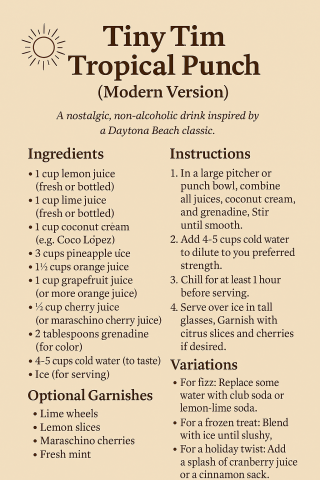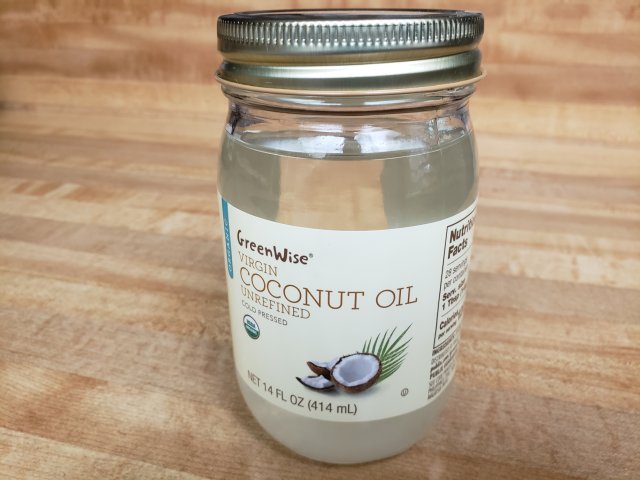There are a lot of things about the good ol' days that I don't miss—smoking on airplanes is at the top of the list—but recently I was gloriously reminded of one of the benefits that we took for granted at the time: good showers.
I don't think anyone born after 1990 has any idea what a good shower feels like. For almost 25 years it has taken me twice as long as previously to take a shower, because the flow from today's emasculated nozzles is so weak. Maybe if you've stood under a waterfall, or a tropical rainstorm, you have an idea of the joy of a shower free from unnecessary regulation, but it's pure bliss after all this wimpy stuff, let me tell you.
As I stood under the shower, the thought crossed my mind: I know President Trump has a lot of more important things to think about, but I sure wish he'd get rid of the shower head restrictions.
I thought it was just a useless wish. But like my similar dreams that companies would get rid of the junk that fills much of our food, or that someone would take seriously the catastrophic rise in allergies, autism, ADHD, and other afflictions that have replaced measles, mumps, and chicken pox as parental concerns. But at last, we as a country are attempting to address those and other long-time concerns of mine, so I though maybe shower heads had a chance.
Lo and behold, today I learned that President Trump has already rescinded—not the original 1992 regulation of showerheads, which I would have preferred, but at least the subsequent re-interpretations of the rules that were considerably more onerous. I'll celebrate victories when I see them.
There are many ways to conserve resources. One size fits all rarely works well. I'll take shorter, more powerful showers; you're welcome to take longer, wimpier ones.
Maybe it's time to stimulate the economy by buying new showerheads. As long as they're made in America.
Make showers great again!
Permalink | Read 845 times | Comments (0)
Category Politics: [first] [previous] [next] [newest] Random Musings: [first] [previous] [next] [newest] Everyday Life: [first] [previous] [next] [newest] Conservationist Living: [first] [previous] [next] [newest] Glimpses of the Past: [first] [previous] [next] [newest]
For another of the numerous projects that overflow my cup of time, I was perusing my post of almost a decade ago, A Dickens of a Drink, in which I lament the loss of a favorite drink from the old Kay's Coach House restaurant in Daytona Beach. Although the kindly bartender responded to our family's enthusiasm and my youthful pleas by writing out the recipe, I was never able to acquire many of the ingredients. Even today, with Google and the vast resources of the Internet to help, a search for "Bartender's Coconut Mix" brings up only a sponsored handful of coconut liqueurs—and my own post. Cherry juice was not something available in grocery stores back then, and I'd never heard of grenadine.
As I have occasionally been doing recently, as part of my AI Adventures, I asked Copilot to analyze the text of my old post. As part of its response, it asked, "Would you like help modernizing the Tiny Tim recipe for today’s ingredients?" What an idea! Well, nothing ventured, nothing gained, and here's what it came up with (click image to enlarge):
I am looking forward to trying this out on a smaller scale. I'm sure I can find all the ingredients. A quick reflection makes me question some of the proportions, but it's a great place to start. Maybe that's what an AI tool should be all about: Begin with a well-researched base, then add the human element (experiment and taste) to make it real.
Permalink | Read 2275 times | Comments (1)
Category Children & Family Issues: [first] [previous] [next] [newest] Everyday Life: [first] [previous] [next] [newest] Food: [first] [previous] [next] [newest] AI Adventures: [first] [previous] [next] [newest]
Okay, NOW it's funny. At the time I was not laughing.
The doorbell rang. Normally, I'm more cautious and look before opening the door, but I was expecting a friend and so threw the door open with a cheery greeting. Imagine my shock when faced with a young man selling pest control.
I do try to be polite, so I calmly reminded him of the "No Soliciting" signs at the neighborhood entrances. That's when things got weird.
"Oh, I'm not a prostitute; I'm merely selling pest control."
"Which is soliciting."
"No it's not. Look it up on Google. Soliciting is...."
At that point I exclaimed something loud and unintelligible and slammed the door.
Five minutes later I could laugh.
He didn't even have the excuse of English being his second language, as he had no trace of an accent. Possibly one could blame a failure of 12+ years of school.
But what it sounded like at the time was that he was being cheeky, that this was a practiced response for the many people in our neighborhood who inform solicitors—politely or rudely—of the warning signs they should have seen upon entering. (Unless, of course, they were dropped in by helicopter or parachute.)
Either that, or he had been coached in that response by whatever pimp sent him here.
I've always been open to cute little girls in Girl Scout uniforms selling Thin Mints, and to the earnest band members from our local public school who once a year sell apples as a fundraiser. Perhaps, however, we should consider these to be gateway drugs. I try to be kind to door-to-door salesmen, because Porter had such a gig one summer during college, and I know that "pimp" is not too harsh a word for the adults who profit by sending the innocent into such situations. That's just sleazy.
I have to give the Jehovah's Witnesses credit: they've taken to setting up on public land just outside of the neighborhood instead of knocking on doors and disrupting people's Saturday mornings. They can read and follow the rules.
Maybe I should resurrect my COVID-era door sign:
Permalink | Read 554 times | Comments (0)
Category Everyday Life: [first] [previous] [next] [newest] Just for Fun: [first] [previous] [next] [newest]
I created this back in November, before denigrating the world's richest man became almost as popular a pasttime as abusing President Trump. But now seems the right time to post it, because yesterday...
... we watched the SpaceX rescue mission finally take off. And it took off like a ... well, like a rocket! I don't know if the impression of excessive speed was an effect of the more powerful engines, or of the launch trajectory, or both, but normally there's a significant wait between liftoff and the time we can see the spacecraft. This time, the flame appeared from behind our neighbor's house in almost no time at all, and it barely gave me a chance to snap a photo.
Godspeed on your mission, SpaceX Crew-10!
Permalink | Read 880 times | Comments (0)
Category Everyday Life: [first] [previous] [next] [newest]
Sometimes I don't mind showing my age: When contemplating a post appropriate for both the day of the lunar eclipse and Pi Day, this is what came immediately to mind: Dean Martin's "That's Amore."
I didn't bake a pie for Pi Day this year, but we did watch the eclipse. My cell phone camera is great for most things, but completely failed in capturing anything of the event worth publishing.
The real-life sight, however, was well worth setting my alarm clock for. We had a great view from our front yard, and the weather was perfect, i.e. a cloudless sky, with the temperature cool but pleasant.
UPDATE: Noah's high-quality camera (and patience) produced much more interesting photos. Here's one (click to enlarge).
I woke up just before midnight for the onset, and watched until I could discern—or at least thought I could discern—a small bite taken out of the moon. At 1:30 a.m., about halfway to totality, the sight was impressive, and we enjoyed the brief moments of totality around 3 a.m. With all the hype about the "blood moon," I expected it to be redder than it was, but that did not detract.
The first lunar eclipse that I remember would have been when I was five years old or so. I recall getting up early in the morning and going with my father to a place where we could watch it in the early dawn. I have one image in my mind: my father crouching beside me as we watched the moon low in the dawning sky. It was cold, but not excessively so. I don't know how aware I was of the significance of the lunar eclipse, but I do remember that I was doing something very special with my father, and that was priceless.
Permalink | Read 1076 times | Comments (1)
Category Everyday Life: [first] [previous] [next] [newest]
Back in December, I wrote about the time Noah took his little sister flying.
Today was our turn.
We flew to Ocala and back in a Piper Cherokee Archer.
Not only was the flying fun, but so was seeing (and hearing) an international airport from the "inside." Thanks, Noah!
The inauguration of President Trump could hardly have been as impressive as the coronation of King Charles III, but it was still very moving. As with the coronation, I watched all of the ceremony, and parts of the other events. One thing I particularly enjoyed: the bands and the singers were great. The only disappointment with the music was the commentators who talked over the piccolo solo in The Stars and Stripes Forever. :(
One highlight for me: speaking of one pipe band's achievements, the commentator mentioned that they had played in Switzerland; I am 99.9% sure that they must have been at the Basel Tattoo. I've never attended the Tattoo itself, but I've thrilled to its parade.
Another: I confess to playing "air cymbals" when one of the bands at the inauguration featured The Liberty Bell March, which I play every Independence Day with the Greater Geneva Grande Award Marching Band. There were many great bands at the inauguration—the military band and chorus were especially impressive.
The GGGAMB should have been there, but we have a strict policy of doing only one performance per year, and Geneva asked first.
It's January 6; it's Epiphany! Time to move the Wise Men the final steps on their journey from the (literal, in our house) East to Jesus.
And to chalk the door!
Our chalk was personally blessed in 2020 by our never-forgotten Father Trey Garland and kept sacred for its once-a-year use.
Bless this house and all who live here and all who visit.
We're all set for 2025!
Permalink | Read 922 times | Comments (2)
Category Everyday Life: [first] [previous] [next] [newest]
I love books. I've loved books for longer than I can remember, since my parents read to me long before I could read for myself—as naturally as a bird-parent drops food into its hatchlings' mouths.
The transition from non-reader to reader was not without its stumbles. Even at my advanced age, I still remember Charlotte's Web with both pleasure and pain. My parents had been reading the book out loud to the family. As the oldest child, the one who could now read on my own, I grew impatient with the one-chapter-at-bedtime pace, and the next day picked up the book and continued the story on my own.
Maybe that's not always a bad thing, but it meant that I was alone when I encountered Charlotte's death. If there was some of the deadly sin of Avarice in my action, it carried its own punishment with it. Ah, well—rites of passage are not meant to be easy.
The transition from non-reader to reader is one of the most significant milestones in modern life, one we don't share with our more primitive ancestors. As recently as 1900, more than 10% of the American population was illiterate. Somewhere between 1969 and 1979, that dropped to below 1%. This, of course, takes no account of how well people read, nor the more disturbing trend of can read but don't. But that's not the question that emerged recently, prompting me to write.
(Yes, this is a new post, not one pulled from my storehouse. It was supposed to be a quick and easy post to make. I should have known better.)
The question is whether or not there are other decisive milestones on the literacy journey, once one has mastered reading Of course there are significant steps in the progress of that mastery, a big one being the transition from being able to decipher words to the technique having become so automatic that it is accomplished with no conscious thought at all to the process, only the content. For example, I can read French well enough to enjoy some books, but it's nowhere near an automatic process.
(I think that there's a point still further, when conscious thought creeps back in, but I never made it through Mortimer Adler's How to Read a Book, much less apply his techniques, so I can't say from personal experience.)
What I'm wondering is how significant to the reader has the advent of e-books been. It's not of the order of the act of reading itself, but the Kindle has certainly changed our lives and reading habits. I'm definitely bimodal when it comes to books: There's nothing like the pleasure of reading a physical book, but e-books have distinct advantages as well, such as being able to carry a vast library in a handheld device, and to search the text, and make notes, and highlights, and to copy excerpts via cut-and-paste rather than laborious typing. On the other hand, e-books don't really belong to us; we may like to think so, but they can be taken away from us at any point. So I will read with the physical books, and I will read with the e-books also.
After that long introduction, here's the incident that gave me pause: After reading six Kindle books in a row, I began another in physical form. (Brandon Sanderson's Warbreaker, if you're curious.) I was reading along, and when it came time to turn the page, I unthinkingly swiped my finger across the lower right-hand corner of the book. That's the way I turn the page with my Kindle
Guess what? It didn't work with the physical book, and I was momentarily taken aback. Even more interesting, I still find myself repeating the motion on occasion, and I'm 143 pages into the book.
The human mind can be peculiar, sometimes.
Maybe you all knew this, but I did not, so I'm posting it, because it's very helpful.
I use Google Calendar, and am for the most part pleased with it. But I have always been frustrated by the "Holidays in the United States" calendar. I want to know the major holidays, especially those that change from year to year. I do not want my calendar cluttered up with days that mean nothing to me, or worse, cause me to grind my teeth. And I mean cluttered. If you're like me, your calendar shows not only your events, but those of other people: your spouse, your children, your church, your children's soccer teams.... I don't want another precious space in the day taken up by being informed that it's the first day of Women's History Month.
There is a way out.
- In your calendar, if you can't see the left-side panel, click on the Main Menu drop-down (three lines) in the upper left, to bring the side panel out.
- Under "Other calendars," hover over "Holidays in the United States" click on the three vertical dots to the right, and choose "Settings."
- Under "Holiday calendar content," click on "Select them in 'Regional holidays.'" This takes you to a page where
- Under "Holidays in the United States," expand "Public holidays." Now you can customize as you wish. Columbus Day offends you? Off with its head! (On your own calendar—leave the rest of ours alone.)
- Expand "Other observances." This is where you can really go to town. I took my machete to every instance of "First Day of XXX Month" with glee. If you don't really care what day Easter is, take it out. Sorry, however—unchecking "Tax Day" does not get you a break with the IRS.
That's it. Enjoy your new-found calendar freedom.
Or, if you're one of the few who would like to see more entries on your daily schedule, there's a section where you can add holidays from all around the world. Holidays in Switzerland, for example. Or in the Gambia. Or Timor-Leste, for that matter.
UPDATE: This works great for my laptop, but unfortunately my preferences are not carrying over to my phone's calendar, as I discovered when it informed me this morning that today is "Native American Heritage Day." I'm all for celebrating Native American Heritage, but I don't need a day for it and neither does my calendar. One of these days I hope to figure out how to fix that, but it's not high priority right now. If anyone has successfully dealt with the problem, please speak up!
Let's honor our veterans—those who stand "between their loved home and the war's desolation"—by making our military into an occupation that attracts the best and the brightest, offers opportunities for education and advancement and a good future for those who need a hand up, provides well for their families, prioritizes their physical and mental health when they return home, and above all has the policies and direction to be a place where our service men and women can serve with honor and integrity.
That's the least we can do, and the alternative is a military draft. I lived through times of conscription, and don't ever want to see those horrors again.
Here are a few quotes from an Epoch Times article called "Small Actions to Save the World."
A consensus seems to be emerging. Civilization as we knew it only a few years ago appears to be decaying. ... You probably agree and would like to do something about it. But what?
The expectations and connotations of the word change have flipped. Whatever it is, you can predict that the change will be toward something worse, more degraded, more debased, and so on.
Being surrounded by that reality casts a kind of pall over daily events and choices and affects how we look at the world. It determines whether we expect the dawn or the darkness, and this outlook tends to be self-fulfilling in one way or another.
If we don’t speak out in small ways ... the decline will surely continue without any pushback. If there is going to be pushback, someone has to do it.
At the same time, I started to appreciate anew the institutions that are upholding values consistent with the good life: good service, decorum in manners and dress, attention to quality, genuine commitment to excellence, and so on. When you run into examples of this, it is something you can do to point it out and praise it.
Above all,
Rather than giving into the attitude of decline and fully expecting the darkness of night to be the next step, we can proceed through life with a determination to make sure that it does not happen. We can all do something, even if it’s very small, but those actions might make a big difference.
Once you start paying attention to the signs of those who are trying to improve the world rather than tear it down, you will find them everywhere. Sometimes, a little voicing of support is all that is necessary to make sure it continues. Reward the good and stand up against the bad: Everyone can do this in small ways.
Yes, we need much bigger changes to save the world. Above all else, we need a new respect for freedom and rights, and that requires dramatic political change. But we cannot count on that, and, in addition, big changes are downstream from the small ones. There are features of life we do control, and here is where everyone can be part of the change.
Don't be manipulated. Good advice, but very broad, and hard to follow. This post was inspired by what I have read about "bad actors"—AI bots or paid humans—attempting to sow discontent, anger, and hatred online. The Chinese and the Russians have both been accused of this, with what seems to be pretty convincing evidence, and I fear some of it is also homegrown.
My greatest concern is that Artificial Intelligence is rapidly advancing to the point where we can no longer trust our own eyes and ears, at least where online videos are concerned. It is possible to manipulate images and audio to make it appear that someone is saying something he or she never said. Think what political enemies could do with that! Everything from rigging elections to starting World War III. And you know those crazy spam blackmail threats that claim they recorded you doing "nasty things" in front of your computer? The ones you face with a grim smile and quickly delete because you know you never did whatever it is they claim? Imagine them including a video of you "actually" doing or saying what you did not? What if they show you a candidate for public office in that compromising position? Or your spouse, or your children. What about fake kidnappings? I could go on and on—my imagination is fertile and paranoid.
But that's not where I'm going in this post. AI's not quite there yet, and we have a clear and present danger in the here and now: Angry, profane, and hateful comments posted to articles, videos, and podcasts. Nasty online videos (especially the short form commonly seen on Tik-Tok and Facebook Reels) whose purpose (obvious or subtle) appears to be to stir up negative emotions. And that's just what I see every day; I know there's a lot more out there. It's hard not to have a visceral reaction that does no one any good, least of all ourselves.
And that, I'm afraid, is exactly the purpose of what is being posted. To make us angry; to make us suspicious of each other; to influence our reactions, our actions, our purchases, and our votes.
The best solution I've been able to come up with (and I have no idea how effective it might be, except with me) is this:
- Know your sources. Is this negativity coming from someone you actually know, in person, so that you are aware of the context? Is it from someone you know online only, but have had enough experience with over time to assess his general attitude, reliability, and track record? If not, keep your salt shaker near.
- When in doubt, if the content tempts you to react badly, assume the best: It's a bot or troll whose purpose is to make you angry; or a human tool too desperate for a job to consider its moral implications; or an ordinary human being who has been having a bad day/week/year (doesn't that happen to all of us?). In any case, make an effort not to fall into the trap.
- Avoid sources that usually make you react badly. Unfortunately, I don't think we can afford to avoid seeking information about what is happening in the world. One of the first rules of self-defense is to be aware of your surroundings. But we can be cautious. Even the sources I find most reliable can have nasty trolls in the comment section, so I mostly avoid reading the comments. I'm also trying to wean myself off of the Facebook Reels (mostly ported over from Tik-Tok or Instagram it seems). They can be fun, and funny, and sometimes usefully informative. But they are definitely addictive, and I've noticed that far too many of them are negative, even if humorous, leaving an aftertaste of fear, anger, disgust, and/or suspicion. Not good for the human psyche!
- Consider slowing down? I'm struggling with this one, because of the reality that so much of our information comes in video form these days. Unlike print, in which it is easy to skim for information, to skip over irrelevant sections, and to slow down and reread what is important, and which provides a much better information-to-time-spent ratio, the best one can do with video is to speed it up. I find that almost everything can be gleaned from a video just as well if it's taken in at 1.5x speed, sometimes even 2x. Porter's ears and brain can manage 2x almost all the time. This is a blessing when there is so much worth watching and so little time! However, here's what I'm struggling with: videos watched at high speeds tend to sound over-excited, even angry, when at normal speed they are not. And the human nervous system is designed to react automatically to such stimuli in a way that is probably not good for us if we are not actually in a position to either fight or flee. I don't have a satisfactory answer for this, but I figure it's at least worth being aware of.
- Remember that the people you interact with online are human beings, who work at their jobs, love their families, and want the best for their country, just as you do. Unless they're not, in which case it's even more important not to rise to the bait.
Be aware, be alert, do what is right in your own actions and reactions, and hope for the best. It's healthier for us all.
Permalink | Read 1087 times | Comments (0)
Category Hurricanes and Such: [first] [previous] [next] [newest] Health: [first] [previous] [next] [newest] Politics: [first] [previous] [next] [newest] Random Musings: [first] [previous] [next] [newest] Everyday Life: [first] [previous] [next] [newest] Social Media: [first] [previous] [next] [newest]
You know how you do a search on your computer or your phone, and the next thing you know an advertisement related to that search shows up on Facebook? Or worse, it seems as if even talking about a product brings up such an ad? I have a new twist on that problem, and I say the situation has gotten out of hand.
This morning I wrote a new blog post, which I have saved for another day. It contains the following line:
We absolutely drink tap water when we can, but we also keep bottles of water in the closet in case a hurricane (or anything else) threatens our water supply.
In point of fact, no hurricane has yet cut our water supply, though we take that threat seriously, in the same way we take the possibility of fire seriously and have smoke alarms installed. But the worst that has happened with our water was to have had it cut off for an hour or two for maintenance, which has only happened a couple of times, and for which we were always warned ahead of time.
After a lovely morning with a friend at our local botanical gardens, followed by a delicious lunch at the Cheesecake Factory, we came home to no water. When our local government wanted to tell us where we could pick up sandbags if needed (we've been getting a LOT of rain), we got phone calls to all three phones, text messages to two phones, and e-mails to two separate accounts. I think we even got alert messages on our phones. But for this, nothing.
In a reminder of why it can be good to hang on to my Facebook account, that's where we found the information that much of the neighborhood was also without water, that the city had no idea when it would be back on, and that we'd probably be faced with a boil water directive when it was.
Shortly after 3:00, the water was back on. We never heard anything about a need to boil our water, but we did hear (again, via Facebook) that the workers were taking steps to make sure the lines were clear and that wouldn't be necessary. So all's well that ends well.
But I'll admit it was a shock, and a bit of a wake-up call. I'm quite certain that in the 40 years we have been here, this is the first time we have had our water supply halted without warning. The fact that I had just written about its reliability just added a little freakiness to the surprise.
As the Boy Scouts always told us, Be prepared.
Permalink | Read 1338 times | Comments (0)
Category Everyday Life: [first] [previous] [next] [newest] Just for Fun: [first] [previous] [next] [newest] Social Media: [first] [previous] [next] [newest]
I made nasi goreng (Indonesian fried rice) for dinner tonight. (It was yummy.) The oil I used was coconut oil, and the experience was not without mess and a few muttered grumbles: Why does coconut oil come in jars instead of bottles?
Before transferring the oil to one of the bottles I use when I make oil infusions, I took a picture of my coconut oil, because it finally occurred to me that coconut oil comes in jars because this is not what it looks like for most of you:
I guess I'll worry about getting the oil out of my tall, thin bottle when winter comes.













